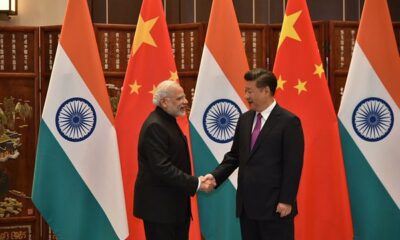Article of Faith
Zamfara State Government and its Ramadan Feeding Palliatives: Right or Wrong? -By Abdulkadir Salaudeen

Does feeding Muslims in Ramadan need state intervention in Nigeria? I do not think so. This is because the Nigeria State, as at the time of this write up, is a democracy not a theocracy. It is democratic; not theocratic. This is the factual fact. This is not to say it cannot be a theocratic state modelled on Christian faith or Sharia. Knowledge of this belongs to the Sole Knower of the future (Allah). But as it is now, it is a democratic state. Therefore, state resources should not be used to advance the cause of any religion. Thus, no state has the constitutional right to feed people because they are fasting. This is common sense.
Fasting is a personal choice between an individual and his Creator. For a responsible Muslim who is conscious of Allah, it is even more than a choice. It is an obligation—a discharge of duty imposed upon him by Allah. In this sense, it is not a choice for a Muslim to fast Ramadan; it is an obligation. Therefore, any Muslim who chooses not to fast in the Month of Ramadan, without any genuine excuses, admissible under the Shariah, is irresponsible, and is unjust to himself.
A state might be duty bound to feed its citizens if it instructs them to fast. For instance, former Nigerian President, Olusegun Obasanjo, sometime in 2004 called for three days fasting and prayers for peace to return to the nation. Just last year, a governor I admire, that of Borno State, Babagana Zulum declared a one day fasting for a return of peace to Borno and as a spiritual solution to the BH crisis. Presidents, governors, political and religious leaders asking citizens to fast in Nigeria is very common. I can give more examples. For such fasting, perhaps, it might be appropriate for presidents or governors to feed the fasters since they are the ones who asked them to fast. Though I don’t do this kind of fasting. Someone should help find out if a Muslim can fast (other than Ramadan) on the instruction of the state.
But for Ramadan, the injunction is from Allah to those of us who believe in Him. The states should not have business feeding people in Ramadan. Mind you, ‘people’ here means Muslims. We should not forget that government moneys are taxpayers’ moneys. And nobody in the present day Nigeria—to the best of my understanding—pays tax for the purpose of Ramadan feeding; not even taxpayers among the Muslims pay tax with such intention. Just as I argued in a previous article that no one has the right to deny female Muslims the right to use hijab in schools which are run by government through taxpayers’ money; it is the same logic: no government has the right to use taxpayers’ money as Ramadan palliatives to feed poor Muslims. Would the government do same to the Christians during Easter or Christmas? Even if it does so, is that the function of the state? Would that nice gestures be extended to the atheists and the agnostics in the state? Are they not also taxpayers?
Zamfara State Government’s Ramadan feeding program for which 2.9 billion was earmarked calls for concern. N2.9 billion? This is gargantuan. I don’t know how this could be justified. If it is said to be a Muslim majority state, but there are also indigenous non-Muslims and non-Muslims settlers who are taxpayers in the state. Why not use this huge money to create jobs so that people can permanently feed themselves? How does the state think she can cater for the peoples’ needs through charity and palliatives? I cannot but agree with Nadine Gordimer, the 1991 recipient of Nobel Prize in Literature, who said: “The new century is not going to be new at all if we offer only charity—that palliative—to satisfy the conscience and keep the same old system of haves and have-nots quietly contained.”
In addition, the age long aphorism of ‘teaching how to catch fish’ rather than ‘giving out fish’ is in agreement with the Sunnah of the Prophet (SAW). In a hadith narrated by Anas ibn Malik: A man from the Ansar came to the Prophet (SAW) and begged from him. The Prophet said, “Do you have anything in your house?” The man said, “Yes, a piece of cloth, a part of which we wear and a part of which we spread on the ground, and a wooden bowl from which we drink water.” The Prophet said, “Bring them to me.” The man brought these articles to him and the Prophet took them in his hands and said, “Who will by these?” Someone said, “I will buy them for one coin.” The Prophet said twice or thrice, “Who will offer more than one coin?” Someone said, “I will buy them for two coins.” He sold them for two coins and the Prophet said, “Buy food with one of them and give it to your family. Buy an axe and bring it to me.” The man brought it to him. The Prophet fixed a handle to it with his own hands and he said, “Go gather firewood and sell it, and do not let me see you for a fortnight.”
The man went away and gathered firewood and sold it. When he had earned ten coins, he came and bought a garment and food. The Prophet said, “This is better for you than for begging to come to you as a blemish on your face on the Day of Resurrection. Begging is only appropriate for three people: one in grinding poverty, one in serious debt, and one who must pay a difficult compensation.” (Abu Dawud)
The Prophet (SAW) deemed it necessary to teach this companion how to catch fish. And it benefitted him. That is entrepreneurial skill. State budgets should be used to empower the masses; not to feed them. What if it is argued that the government is doing this because people are displaced from their means of livelihood due to the activities of bandits? Hmmm!
So what happens to these people after Ramadan? Would the Government continue to feed them? It should also be noted that in the same budget of 2021, N1 billion is budgeted for the construction and renovation of Jum’at mosques across the state, and for other religious activities. How this would impact positively on the economic fortune of the Zamfarawa (people of Zamfara) is only known to the Government. The government only knows (for I don’t know how to know) how that improves standard of living in the state. Take for instance the State budget for 2021 is N142.7 billion. If this is divided by 12 months it means each month gets a budget of N11.9 billion. Out of this, N2.9 billion will be used to feed fasters in the month of Ramadan as Ramadan palliatives. This is approximately 24.4 per cent of the budget if calculated on monthly basis. How would such state develop?
Alternatively, the Zamfara State Government, in collaboration with the ‘ulama, should have reminded—by means of admonition—the rich people of Zamfara the virtue of spending on the poor in the month of Ramadan. There are many rich people in Zamfara who had been spending, still spending, and are always willing to spend on the poor in the month of Ramadan. May Allah continue to enrich such people. Government should leave these activities to these rich individuals and focus on governance—good governance.
We entreat Allah, by His Mercy and Greatness, to restore peace to Zamfara and all other states in Nigeria where peace is almost a forgotten experience. O Allah forgive our sins and grant us our righteous requests.
Abdulkadir Salaudeen
salahuddeenabdulkadir@gmail.com



















